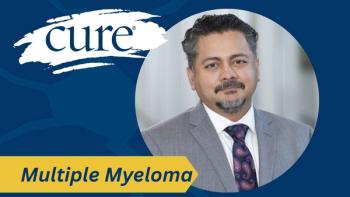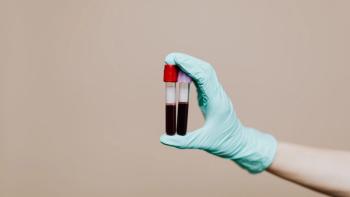
Continuing Her Husband's Work: The IMF Wants to End Myeloma
After losing her husband to myeloma, Novis Durie continued his project, the International Myeloma Foundation, which now has more than 200,000 members in 140 countries.
Susie Novis Durie has a specific vision for the future of the International Myeloma Foundation (IMF), a group she co-founded in 1990 after her late husband Brian Novis was initially diagnosed with multiple myeloma.
That vision is for the foundation to simply no longer exist.
“I hope that we’re a thing in a museum because we will have cured myeloma and we will have closed our doors,” said Novis Durie, who has served as president of the IMF since 1992.
The journey that took the IMF from its initial launch through the current progress that has since been achieved fighting the disease, started with fear and confusion after Brian’s diagnosis. At the age of 33, Brian was told he had a disease he never heard of and that he only had three to five years left to live.
Despite this diagnosis, the pair went ahead with their marriage, focused on fighting his illness instead of the comparatively mundane details of planning a wedding. Joining together with hematologist Brian G.M. Durie, MD, a multiple myeloma specialist, the IMF was born with the goal of helping patients and families facing the same fight with the disease.
Brian, who previously worked as a headhunter in a search firm, turned his energy to developing the IMF during its infancy.
“He was very passionate about this. He had the worst bone disease I’ve ever seen in my life,” Novis Durie said. “He went from being almost 6 feet tall to being 5 feet 2 inches. He just collapsed. A lot of the work he did from the hospital bed in our living room. I was still working at the time and I’d say, ‘Honey, here’s your phone, here’s your pee bottle, the nurse will be here soon, so go for it.’”
Unfortunately, at the age of 37, Brian lost his fight with multiple myeloma. Despite her profound grief at her personal loss, Novis Durie knew she had to continue the work her late husband started.
“In those days, for me, I don’t know how I did it,” she said. “When he died, the foundation was run out of my house. I was literally under the covers with a box of tissues. But I thought, ‘Oh my God Susie, you have got to get your ass out of bed.’ Everything Brian did to make this happen, you can’t let it fall apart.”
From those humble beginnings with just three people on board, the IMF has swelled to become an international powerhouse in cancer advocacy. It now counts more than 450,000 members in 140 countries and has raised more than $100 million, of which 89 percent has gone to support programming and research.
“I always tell people, I don’t care if they wake up in the morning and have miso soup with Cheerios, if you have myeloma or someone you love has myeloma, we’re going to reach out and we’re going to help you, and then you’re going to reach back and help us,” Novis Durie said.
The IMF is focused on four key divisions of the organization: research, advocacy, education, and patient support.
The group’s research division is called the
Additionally, the IMF brought together 200 leading myeloma researchers from around the world as part of the
“These nurses are the top in the country,” Novis Durie said. “They write guidelines for nurses on how to overcome side effects and the various issues these patients face to stay on treatment as long as possible to get the maximum benefit.”
Beyond the extensive work on the clinical and caregiver side, Novis Durie proudly highlights the patient education component of the IMF, for which the group was at the forefront.
“Patient education is my claim to fame. Nobody was doing patient education,” she said. “Maybe why we were so successful is that I really didn’t know what the heck I was doing. I didn’t know if that was a good idea, I just thought we can do anything.”
In addition to holding the first seminars for patients and their families, the IMF maintains a huge network of 140 myeloma support groups across the United States.
The IMF website
Novis Durie looks at the progress achieved since the start of the group with pride, knowing the IMF has helped guide many patients from the darkness of that initial diagnosis.
“It’s a whole different landscape now for patients,” she said. “Right now, we’re on the brink of being able to cure a subset of patients. We have such a cornucopia of new drugs. So to them, I say don’t worry. Take a breath, become empowered as much as you can, use us, call us. You’re going to be okay.”



